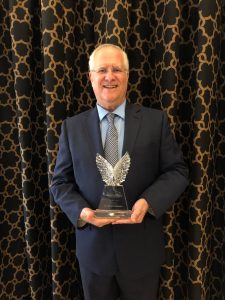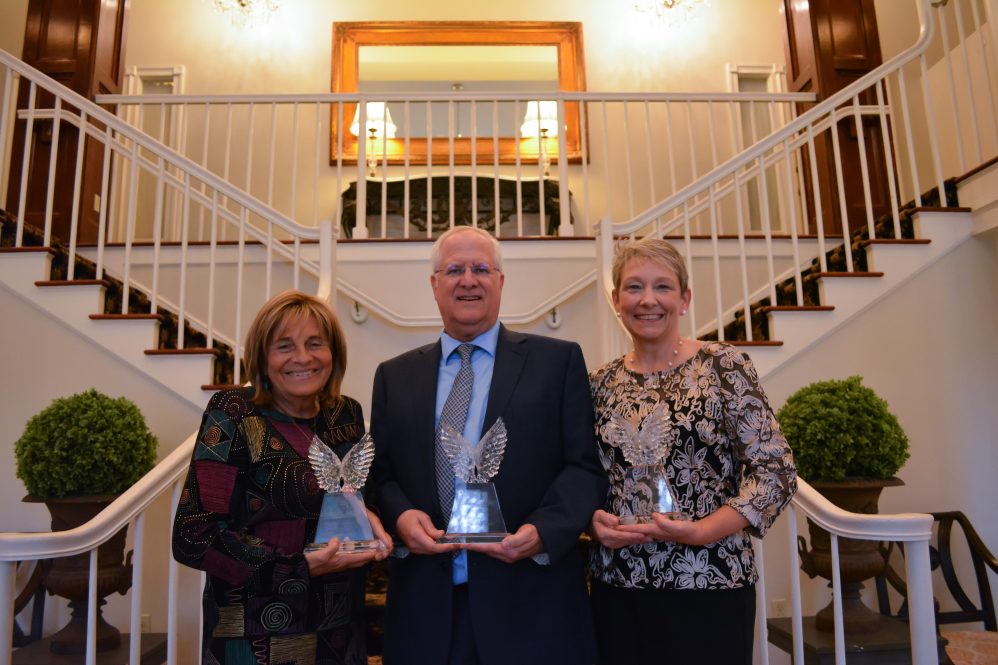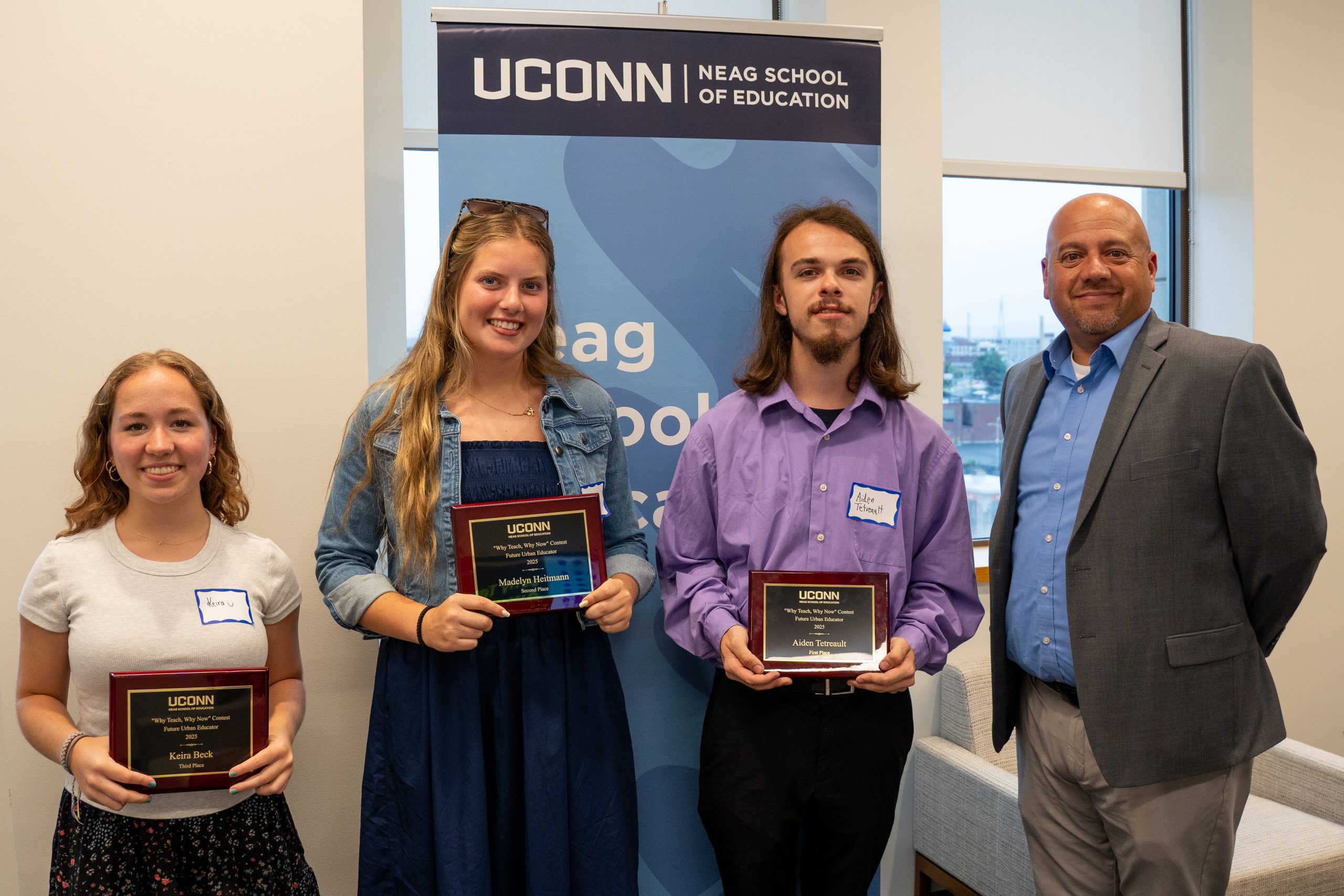On Sunday, November 6, Dr. Ted Rosenkrantz, professor of Pediatrics and OB-GYN at the UConn School of Medicine was awarded the 2022 Alicia’s Angels ‘Angel Award’ from Alicia’s Angels, Inc. The Angel Award is given to those in our community who support families who have suffered the loss of a child.

“I am honored to receive this award from Alicia’s Angels in recognition of the clinical care and support provided to the infants and their families in the NICU,” said Rosenkrantz. “It means a lot to me as a clinician, teacher, and researcher.”
Alicia’s Angels, Inc. was established in 2016, a 501c3, not-for-profit organization with a mission of supporting families suffering the loss of a child. A primary function of Alicia’s Angels is to provide a beautiful and therapeutic environment for families to live with their children when the child has such a shortened life expectancy that they will not survive going home with their families.
While all families with children in the Neonatal Intensive Care Unit (NICU) need the best environment possible, those environments, out of necessity, are highly technical. Families who cannot take their children home will never have another opportunity to parent them. They will not be able to take them to a beautiful nursery or create memories surrounded by peace and beauty. The Alicia’s Angels rooms provide that opportunity. In addition to being a beautiful setting, their rooms are evidenced based on what studies have found to be the most therapeutic elements for families caring for families at end-of-life. The foundation also provides grants and education across the country to assist caretakers to provide the appropriate support to infants and their families who are not going to survive.
“Alicia’s Angels, Inc. is dedicated to families and infants in the most difficult situations. We’re honored for the opportunity to recognize Dr. Rosenkrantz for his decades of dedication to those families,” says Jona Sager, founder and chair of the board of Alicia’s Angels, Inc. “Dr. Rosenkrantz’s career is beyond inspirational to me. I have tremendous respect of him as a physician and as a person.”
Over the last 40 years, Rosenkrantz has been a member of the Department of Pediatrics, Division of Neonatology as well as the Department of OB-GYN at the UConn School of Medicine. For ten of those years, he served as the chief of the Division of Neonatology
“We are proud of Dr. Rosenkrantz on this award recognizing his lifelong contribution to the care of infants, especially those with life-limiting illnesses, and providing needed support for the whole family,” says Dr. Bruce Liang, Interim Chief Executive Officer, UConn Health and Dean of the UConn School of Medicine.
“I credit my mentors, from residency to fellowship, who trained me not only how to provide the best medical care, but to also provide exceptional support to the babies and their families,” says Rosenkrantz. “This award also reflects what I learned from the nurses, social workers, and medical assistants who are at the bedside 24 hours a day and carry the great responsibility to care for the whole family during this period of crisis.”
At the beginning of his career, he needed to give this support to families whose infants could not survive due to congenital defects and prematurity. This was an all too frequent event in the NICU. He learned it was important when talking to parents about their child with respiratory failure due to prematurity and congenital anomalies to never take away hope but to always be honest.
Rosenkrantz would arrange for parents to hold their babies while still supported on a ventilator instead of having to look into a plastic isolette box at their dying baby. He did this together with the nurses, social workers, and bereavement team. Supporting parents whose infant was dying or was severely impaired was hard but his mentors taught him to do it well and now he teaches others how to do the same.



